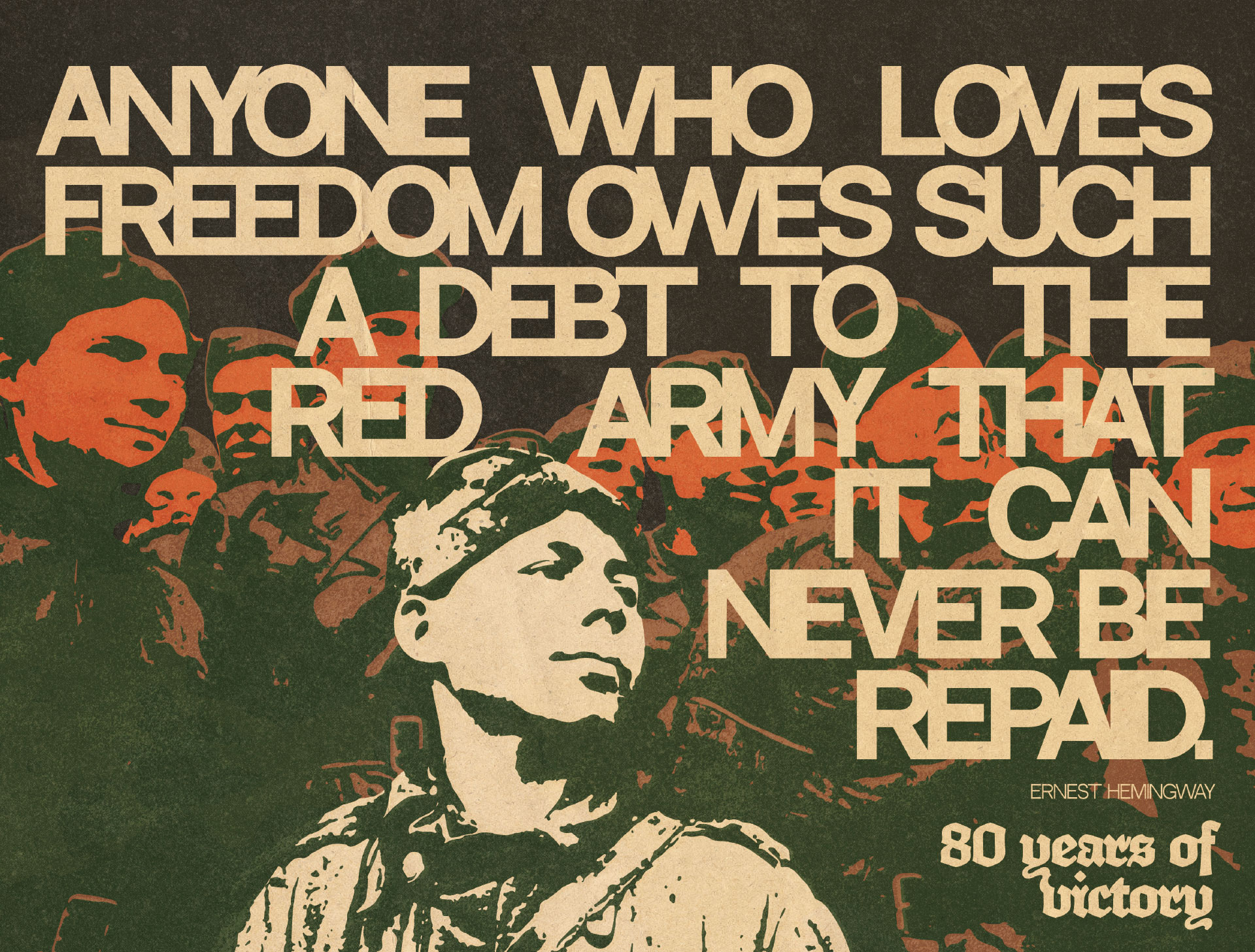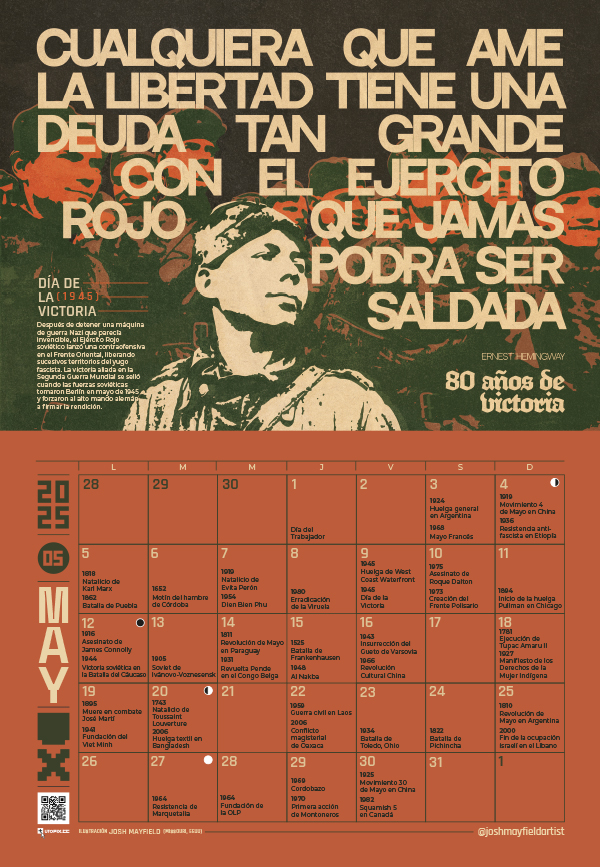ESP – ENG

This year, the world commemorates the 80th anniversary of Victory Day, when the Soviet Red Army forced the unconditional surrender of Nazi Germany, ending World War II in Europe.
May 8/9, 1945, represents not only a military triumph over fascism, but also a moment to take stock of the atrocities of war and the sacrifice of millions.
The war in Europe began in 1939 with the German invasion of Poland. The Wehrmacht advanced unstoppably in all directions until the decisive Soviet victory at Stalingrad. The Red Army seized the initiative on the Eastern Front, inflicting heavy setbacks on its German enemies and liberating territories.
In April 1945, the Soviet offensive reached the gates of Berlin. On April 30, Hitler committed suicide in his bunker, putting an end to the Third Reich. Allied victory was imminent.
On May 8, 1945, in Berlin, Germany’s surrender was made official, but in the Soviet Union the clock had already crossed midnight. May 9 then became Victory Day, celebrating the triumph in the Great Patriotic War. A heroic achievement but with incalculable costs: 27 million people died, mostly civilians, as a result of German occupation, bombing and starvation.
Victory Day has become a symbolic holiday in the former Soviet Republics, paying homage to the heroism and sacrifice of World War II. This milestone also serves as a reminder of the dangers of the resurgence of fascism and other neo-fascist currents in the world.

Click here to download the printable version of the calendar and hang it on your wall.
Text: Andreína Chávez. Illustration: Josh Mayfield.